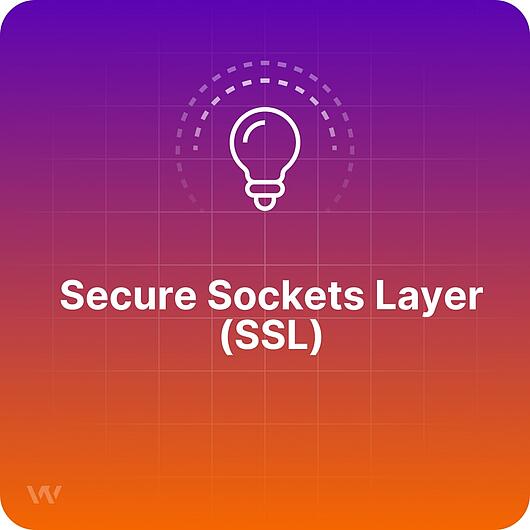- Why Us?
- Features
White Label
For SaaS Platforms & Agencies
Provide our complete analytics suite to your clients, directly within your own interface and with your/their own branding. Discover Analytics-as-a-Service and White Label Analytics. Great benefit, minimal effort.
- Pricing
- White Label
- Success Stories
- ResourcesGetting Started
Secure Sockets Layer (SSL)

TL;DR
An SSL (Secure Sockets Layer) certificate, also called a Digital Certificate, is a global standard security technology that enables encrypted communication between the visitor's web browser and a web server (the server hosting the site).
What is an SSL certificate?
The Secure Sockets Layer (SSL) certificate offers website authentication and enables an encrypted connection. The SSL certificate is highly recommended to any website in order to communicate to the client that the web service host demonstrated ownership of the domain to the certificate authority when the certificate was issued.
The process of digital authentication for a website for the SSL certification is very similar to sealing a letter in an envelope before sending it through the mail, as people do it in order to keep personal information safe (sealed). Similarly, the sites or pages that require users to submit personal or credit card information, such as e-commerce sites, should have an SSL certificate to ensure an encrypted connection.
Why do you need an SSL certificate?
The SSL certificate proves the fact that a website is able to ensure that:
All data passed between the user and the site remains secure (and private)
the site prevents hackers from seizing private data (credit card or bank information, names, and addresses)
people will quickly identify the website taking care of the data and create trust between the two parties, as the certificate confirms the provider is who they claim to be
What type of information is kept secure through an SSL certificate?
Website owners purchase SSL certificates through trusted Certification Authorities that manage and issue security certificates and public keys used for communication in a public network. Having an SSL certificate helps secure information such as:
- Usernames and passwords (Login credentials)
- Transactions information (Credit card number, bank account information)
- Personal data that can be used to identify someone (full name, address, date of birth, or telephone number)
- Proprietary information
- Legal documents and contracts
- Medical records

